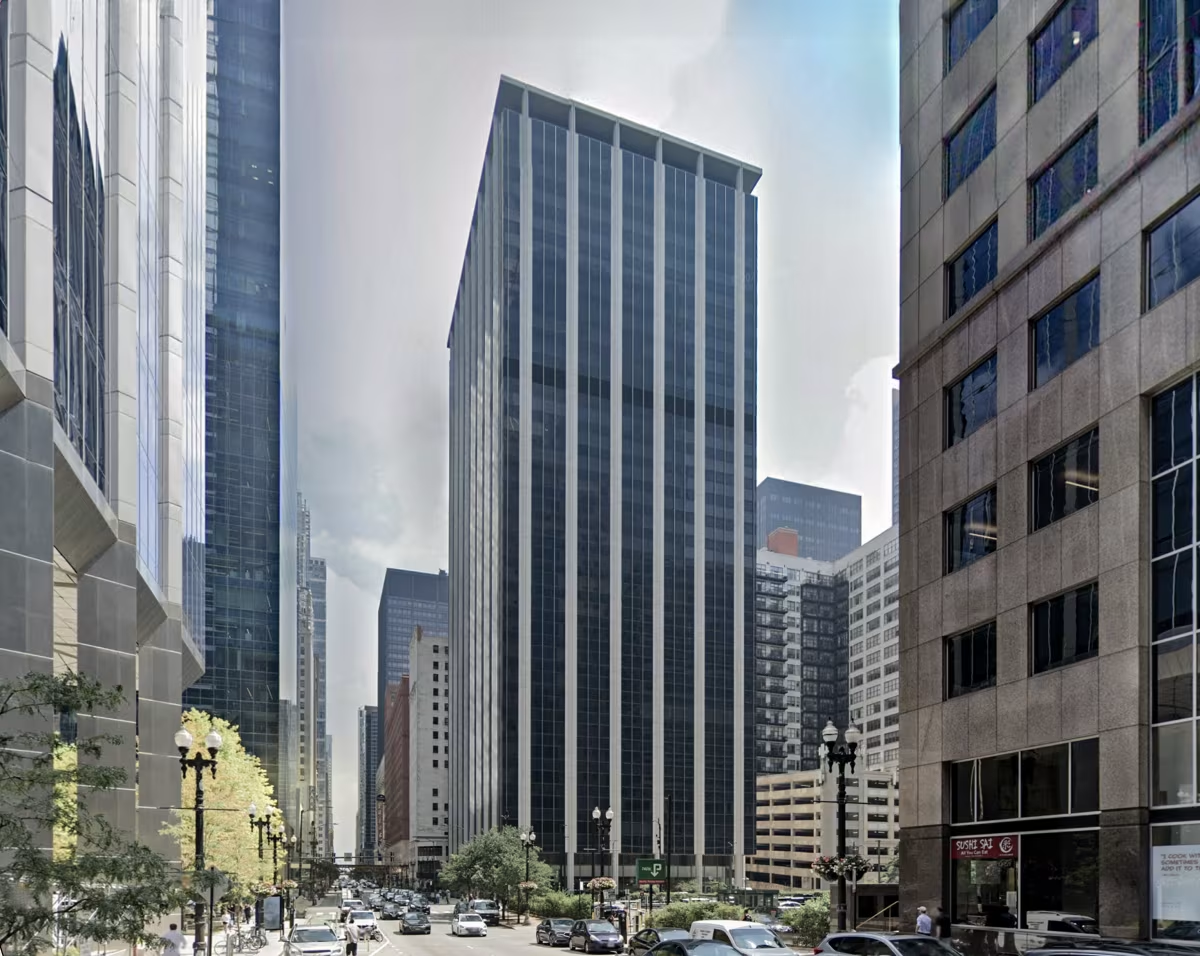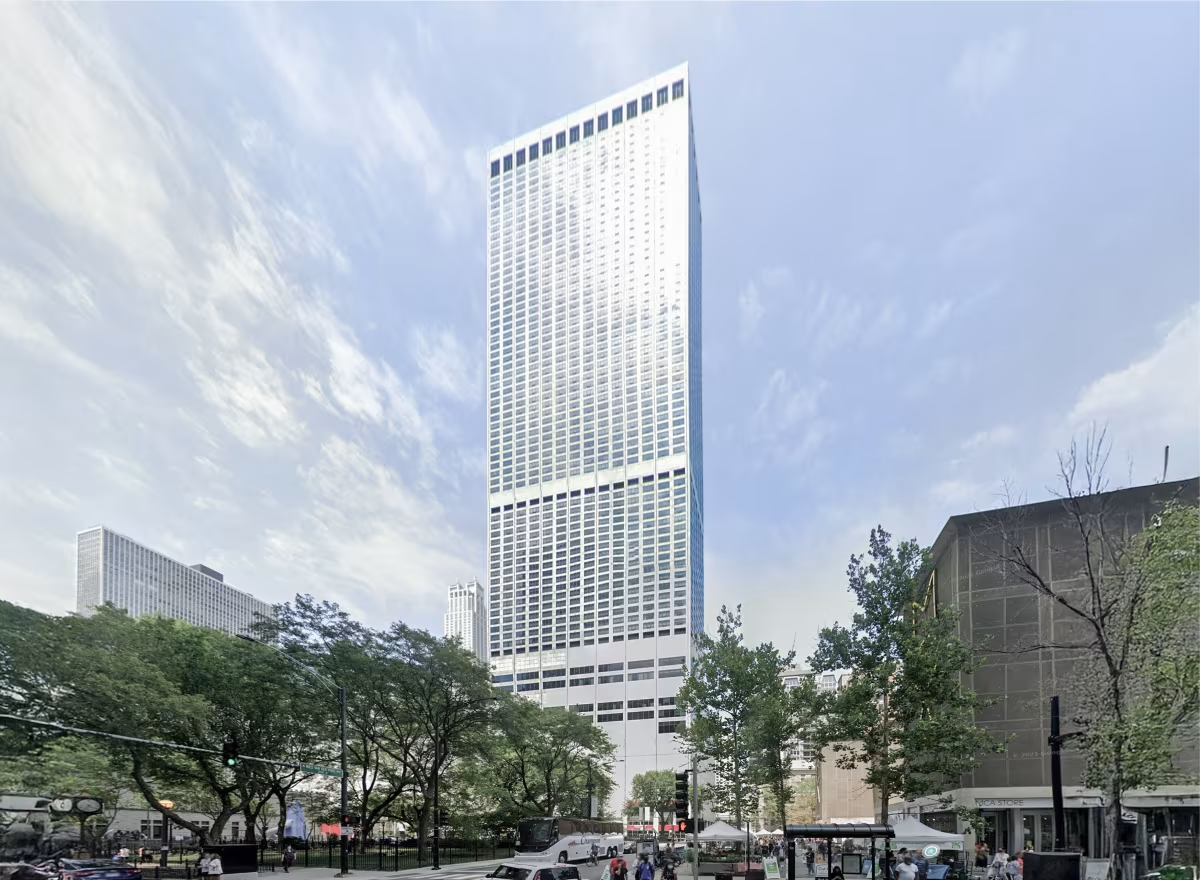The Bell Building vs Water Tower Place


Comparing the The Bell Building and the Water Tower Place is interesting because they both rise in Chicago, IL, yet they were conceived by two different design teams, Holabird & Root and Loebl Schlossman Bennett and Dart, and were completed at different points in time. They were finished more than a decade apart.
This contrast within the same city allows us to see how different creative minds interpreted the evolving needs of Chicago across time.
Let's take a closer look!
Height & Size
The Water Tower Place is clearly the larger tower of the two, both in terms of height and number of floors. It rises to 860ft (262m) with 74 floors above ground, while the The Bell Building reaches 427ft (130m) with 31 floors above ground.
Of course, each project may have faced different briefs or regulatory constraints, which we don't really know about and could also explain the outcome.
Architectural Style
Both the The Bell Building and the Water Tower Place were designed in line with the aesthetic conventions of the Modern style.
Both buildings were completed when the Modern style was already past its peak. This makes them feel like late echoes of the movement, more reflective of continuity or nostalgia than of cutting-edge design at the time.
Uses
The Water Tower Place follows a mixed-use model, combining hotel, residential and retail. In contrast, the The Bell Building has remained primarily .
Originally, the The Bell Building was designed for commercial, but over time it was converted to . The Water Tower Place by contrast has maintained its original role.
The Water Tower Place incorporates a 5-star hotel with 435 rooms. More information is available at the official website.
The Water Tower Place offers 360 residential units.
Structure & Facade
The two buildings opted for different structural and facade solutions.
The The Bell Building uses a Framed Tube In Tube system, which combines a strong central core with a perimeter tube of columns, while the Water Tower Place uses a Frame system, that relies on a regular grid of columns and beams to sustain its weight.
And when it came to the facade, the Curtain Wall went with a Curtain Wall facade, which uses a lightweight glass curtain wall hung from the structure, while the Water Tower Place opted for a Window Wall facade, that uses panels fitted between floor slabs, leaving slab edges visible.
| The Bell Building | Water Tower Place | |
|---|---|---|
| Holabird & Root | Architect | Loebl Schlossman Bennett and Dart |
| 1963 | Construction Started | 1972 |
| 1966 | Year Completed | 1976 |
| Modern | Architectural Style | Modern |
| 31 | Floors Above Ground | 74 |
| 2 | Floors Below Ground | 4 |
| 130 m | Height (m) | 262 m |
| Framed Tube In Tube | Structure Type | Frame |
| Steel | Vertical Structure Material | Reinforced Concrete |
| Reinforced Concrete | Horizontal Structure Material | Reinforced Concrete |
| Yes | Facade Structural? | Yes |
| Glass, Marble | Main Facade Material | Marble, Glass |
| A.L. Jackson | Main Contractor | Inland Robbins Co. |
| Frank Henderson | Structural Engineer | C.F.Murphy Associates |
| IL | State | IL |
| Chicago | City | Chicago |
| 225 W. Randolph St | Address | 835 Michigan Av |